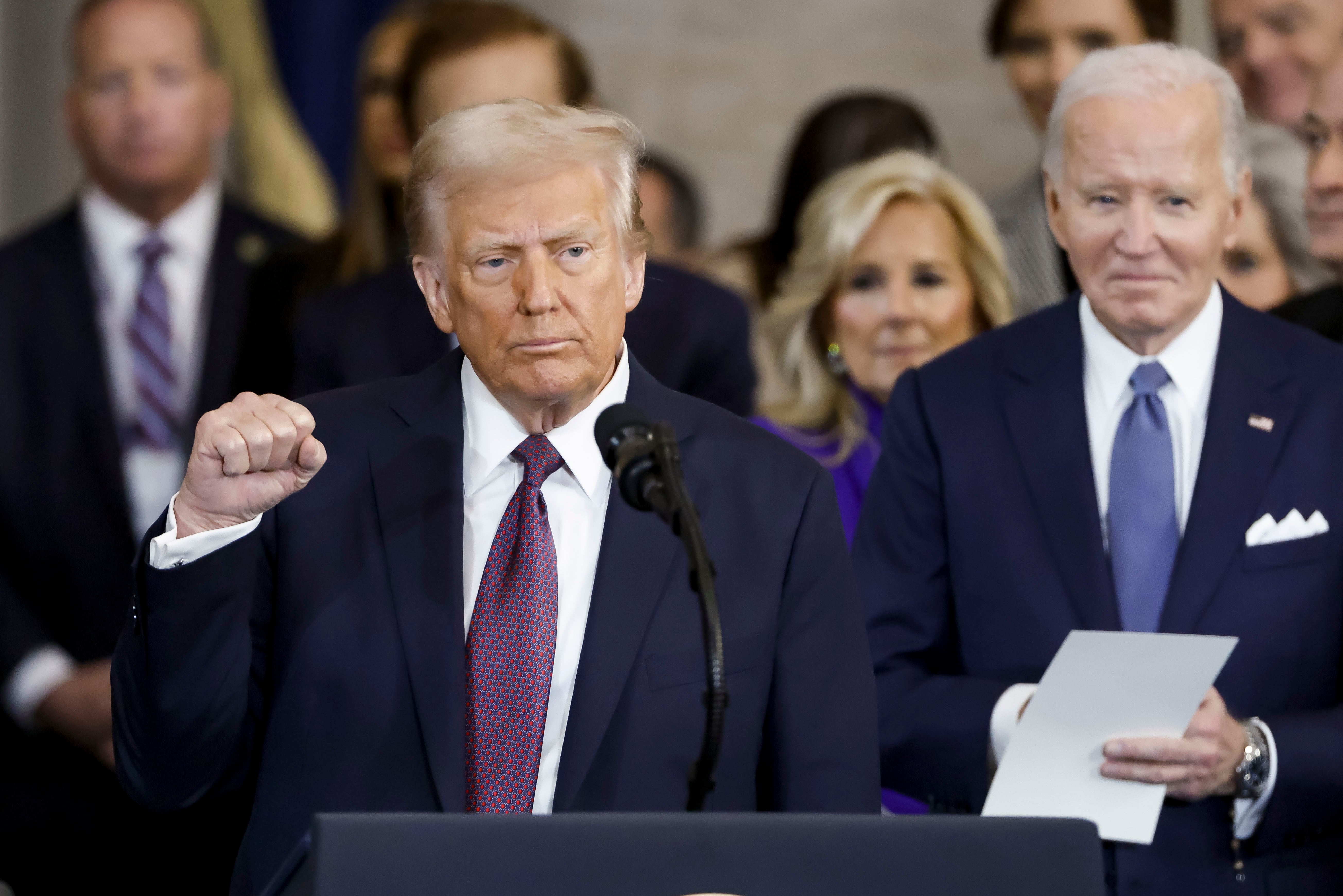Donald Trump marked his return to presidential power Monday with an aggressive inaugural address promising mass deportations and dramatic changes to immigration policy, signaling an immediate shift in America’s approach to border security. The newly sworn-in 47th president declared his intention to expel “millions of criminal aliens” while fundamentally restructuring the nation’s immigration framework.
Speaking before an audience that included four former presidents and an unprecedented gathering of tech industry titans, Trump outlined a hardline immigration agenda that would revive and expand policies from his first term. “All illegal entries will immediately be halted and we will begin the process of returning millions of millions of criminal aliens back to the places from which they came,” Trump declared in his inaugural address.
The 78-year-old president announced plans to reinstate his controversial “Remain in Mexico” policy, which required asylum seekers to wait outside U.S. borders while their claims were processed. In a striking symbolic gesture, Trump also declared his intention to rename the Gulf of Mexico as the Gulf of America, though such a change would face significant diplomatic and practical challenges.
Trump’s return to the White House marks a dramatic political comeback, with the ceremony reflecting his evolution from political outsider to establishment figure. Unlike his first inauguration in 2017, Trump now commands support from America’s business elite, with tech industry leaders Elon Musk, Mark Zuckerberg, Jeff Bezos, and Sundar Pichai occupying prominent positions at the ceremony alongside his family and cabinet members.
The event highlighted both political reconciliation and lingering tensions in American politics. While Trump had refused to attend Joe Biden’s 2021 inauguration after making false claims of electoral fraud, Biden participated in this ceremony alongside former presidents Barack Obama, George W. Bush, and Bill Clinton, demonstrating a return to inaugural traditions. However, the pointed absence of former first lady Michelle Obama suggested ongoing divisions within the political establishment.
Trump’s inauguration alongside his notably younger vice president, 40-year-old JD Vance, presented a stark generational contrast within the new administration. The president’s speech went beyond immigration issues to touch on broader cultural themes, including promises to “bring free speech back to America” and assurances that his administration “will not forget our God.
The ceremony marked a significant departure from Trump’s first inauguration, reflecting his transformation from anti-establishment figure to a president now embraced by much of America’s political and economic elite. The presence of leading tech industry figures particularly highlighted this shift, suggesting potential alignment between Silicon Valley and the new administration despite past tensions.
Trump’s immigration promises, if implemented, would represent one of the most significant shifts in U.S. immigration policy in recent history. The proposed mass deportation program would likely face substantial legal challenges and practical obstacles, while raising concerns about its impact on American communities and the economy.
The inauguration sets the stage for what promises to be a transformative period in American politics, with Trump’s renewed presidency likely to pursue aggressive policy changes across multiple fronts. His immediate focus on immigration and border security suggests these issues will remain central to his presidential agenda, potentially reshaping America’s relationship with its neighbors and its approach to global migration.
As Washington adjusts to its new political reality, the implications of Trump’s return to power and his ambitious policy agenda are likely to reverberate through American society and beyond its borders. The coming months will test both the feasibility of his proposed reforms and the resilience of American democratic institutions as they navigate this new chapter in the nation’s political history.



